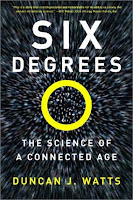"When a user clicks Accept, that they want to join, most of their profile information is now available. That can be used to create a very intense, addictive game, but it can also be used to [sic] advertising, and when you can use that data inside an ad to inject a user's name, their profile picture, the information of their friends, it creates highly relevant, highly targeted advertising, very smart ads. We can call them appvertising..."These "appvertisements" can now be opted out of by in-the-know users, but many of the less savvy users might be taken in by these targeted ads. The real trouble comes when spammers use the collected information to hack profiles. This has happened to several friends of mine, who suddenly send uncharacteristic comments, messages, or status updates wanting friends to go to certain websites. Luckily, these incidents can be mostly alleviated by changing passwords.
Appvertising and spammers are just a few of the downsides to open platforms found on Facebook and MySpace before that. Identity theft, Phishing, and viruses have also become problems on these once mostly safe sites. Before Facebook opened its platform in 2007, there were only a select few Facebook created Applications for sharing photos, groups and events. Now, it seems like there is an application for everything, including those crazy addictive FarmVille type games. Some people would vote for a more sterile Facebook of the past, but others clearly enjoy the new offerings an open platform can bring, even if the bad comes along with the good.
This is the dilemma faced in Jonathan Zittrain's book, "The Future of the Internet -- and How to Stop It." Zittrain argues that the open platforms or Generative-ness of PCs and the Internet, while beneficial for their initial development and popularity, are now becoming more of a negative than a positive. In 2008, when his book was published, Zittrain noted that 90 percent of email was spam (p.99) and that 80 percent of it came from zombie computers sending it without their owners' knowledge (p.46) and nearly half of those computers were in North America. These are staggering statistics, and they are beginning to make people sit up at take notice. Last week I wrote about the prevalence viruses on Windows-based PCs, but according to Zittrain, the truth is that all personal computers are likely to be infected with some kind of virus, especially if they are hooked up to a constantly open Internet source like broadband or a T1 line.
The solution in the past has been to just throw more bandwidth at the spam problem, so that the email lines don't get so clogged that the relevant email can't get through (p.99). However, at some point that solution will not work any more, and then people will have to face the real problem: there are people exploiting the Generative nature of PCs and the Internet, and they're ruining it for everybody. People like Alan Ralsky, the self-proclaimed "King of Spam" and many even more malicious people have used the easily re-programmable nature of PCs and the Internet to not just make a profit, but to take advantage of and hurt people in the process. Although Ralansky was caught and punished, there are thousands more to take his place, and as more patches are made to the system, even more work around programs will be written.
For some, the solution to these problems is to just close the whole thing off and create tethered technologies. Tethered (or appliance) technologies like iTunes, TiVo, and XBoxes are not generative, meaning that they can not be changed or reprogrammed by the consumer, but must be used in the way the manufacturer intended (p.3). These technologies can be reprogrammed and often are, but only by the remote manufacturer. Tethered technologies still serve many useful functions, but they allow for less innovation and their content and functionality are not fully controlled by the user, even if the user has technically bought the product outright. This can of course lead to undesirable outcomes, like a service getting changed or canceled, and the user losing content or functionality that he or she already paid for.
Zittrain includes iPhones to the tethered technology list, but I disagree with him, since there are thousands of applications (written by third and fourth parties) that can be downloaded and added to iPhones, changing what they can do. Perhaps technologies like the iPhone could be the happy medium between too much freedom and too little. Apple does allow applications created by virtually anyone to be uploaded to their App Store. I say virtually, because although anyone can create and upload applications, they first have to pay to become a developer, and then go through online training to learn how to develop, and finally their applications have to pass standards before they can be added to the App Store. Except for the having to pay for the privilege part, this program seems to me to be a great solution to the programming woes of traditional generative technologies. In the Apple Application setting, programming is allowed and even encouraged, but standards have to be met, before new programs can be released to the general public. And, unlike Facebook, iPhone/iPod Touch users do not have to send applications all of their personal information in order to be able to download them. Apple's program may not be perfect, but I think it's on the right track.




